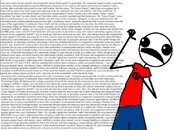I am not sure what you are trying to say. Throttling back a course is nothing but gutting the course to provide the absolute minimum training allowed because the students are not ready for the course. Such as things like dives to 70 vs 100 and callin it a deep dive. All training requires some degree of remedial work. Normally it is achieved with minimal effort. Next the throttleing back is not to privide remedial instruction , per se, it is to reduce the chance of having to fail a student or have a hand full of students slow the rest of the class down. I have watched groups in the same class dive to 90 ft for thier deep dive and other's in the same class do just over 60. Just enough to qualify the deep parameter. I have watched students in the finals of thier aow in the water at a 40 degree heads up trim dogg paddling at 40 ft and then given thier aow card. No one will proudly and openly admit to runing classes like this, but it is meerly an occupation for many instructors to produce card carrying divers. I do believe that diving does make a better diver if the student wants to become a better diver. No amont of instruction can do it if the diver does not want it. Your comment about not having a tendency to self correct what they dont know about is a given. No one fixes what they dont know is incorrect. When you are expoxsed to to those who have good depth control you will try to become that as a means to belong. So long as the (i hate to uae the phrase) zero to hero training is allowed, you will have that method as the mainstreem training timelines. This is why i applauded Bob for being able to say "YOU ARE NOT READY FOR FURTHER TRAINING" to those who can not yet do the basics. There are the naturals who can do courses end to end, but the majority of trainees are not naturals. This all leads into other threads of YOU HAVE TO HAVE A AOW CARD TO DO A PRETICULAR DIVE. Its not about the card,, it is about the divers ability. There are a lot of card carrying AOWs that are barely OW divers. Likewise there are tons of OW carrying folks that can nav through the eye of a needle without touching the sides blindfolded. It is unfortunate that so many instructors economy can not support turning away applying students when they are not ready to continue further training. There is something inherantly wrong with nothing to master diver in 10-20 dives. So once again i applaude BOB for his training ethics.





